"Where do you see yourself in five years time?" This insidious little question invites the interviewee to begin a little game that finishes as a belief built on sand. You guess what your prospective employer wants to hear, and then you give it to them. It's almost as bad as your Aunt's favourite: "What do you want to be when you grow up?" The myriad branching possibilities when you are 12 or 13 years old seem to lead in opposite directions, and all equally tempting. By the time you hit the renowned "mid-life crisis" when you are, theoretically, equipped to make better choices. In reality, your 20s and 30s wide-eyed optimism has usually been replaced by a more cynical outlook on jobs and the workplace. And that mid-life crisis seems to be happening earlier and earlier. In this episode, I'm going to take a look at some of the many "buts" that prevent people from career planning for themselves and then I shall propose an alternative to career planning that will help you get started pursuing what you really want to do. Fair warning: there's a lot of "buts" in here. I wasn't surprised that no hands went up at this workshop. A couple of Gen Xers and the rest millennials, not a single one had a career plan. In most workshops, I'll see maybe two hands tentatively raised when I ask who has a personal career plan. It seems that most people like to leave their future career in the hands of others, their whims and fancies rather than do something as arduous as think about what they would like to be doing in a few years time. It's hardly surprising that Gallup's State of the Global Workplace Report in 2017 finds that 85% of employees are disengaged. Why would you be engaged in your work if you felt as if you were going nowhere you really wanted to go? So they shared their "buts" with me as to why they didn't have a career plan. Maybe you have these "buts" too. But there's no point in planning when the world is changing so quickly! Of course, there are problems in career planning. It's difficult enough to think about 20 or 30 years ahead. Interestingly, I find that the older you are, the easier it is, but that is not so critical. The problem is that we struggle to plan into a future that we anticipate is going to be very, utterly, completely different from today. Go back just 10 years and I suspect that not a single person had an actual career plan that included social media, either as a tool, or as a job itself, let alone being an App developer, Uber driver, YouTube sensation, drone operator, data scientist, genetic counsellor or cybersecurity chief. That the world will be different in 10 years time is not an excuse not to plan, rather, it's a reality to consider and allow yourself to change your plans and remain agile with the ever-changing world outside. But isn't it HRs job to plan my career? Sure, why not. And whilst you're letting them do that for you, how about they choose your life partner. You'll be spending less time with them than at your job, but it's still a pretty major decision. Best to abdicate that to someone who cares deeply about your personal well-being, happiness and sense of meaning... But it's so difficult to know what I will want to be doing in the future. In ‘the road less travelled’, M. Scott Peck starts: “Life is difficult”. What is most surprising, is that, for many people, this is a revelation! Go to any business networking event, or meet a potential client or recruiter – especially during the current economic situation and they will be moaning incessantly about the enormity of their problems, burdens or difficulties as if life should be easy. When I was a teenager I dreamed of being a top chef. I imagined being a chef until I happily died, probably drunk in the kitchen having slipped and broken my fall on the corner of a stove with my head. In my early twenties, I was already happily shifting my thoughts to management and a (slightly) easier life. By my late 20's I was writing computer code and planning on
Joy@Work Podcast
Helping marketplace leaders #UnStuck their true potential to thrive in life and leadership to build a successful, sustainable business with collaborative, high performance teams and Joy@Work with practical, neuroscience-based AdvantEdge Guides and coaching.
Helping marketplace leaders #UnStuck their true potential to thrive in life and leadership to build a successful, sustainable business with collaborative, high performance teams and Joy@Work with practical, neuroscience-based AdvantEdge Guides and coaching.Listen on
Substack App
RSS Feed
Recent Episodes


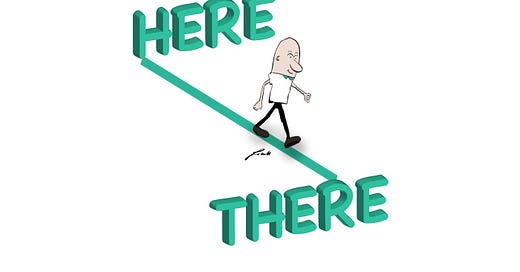



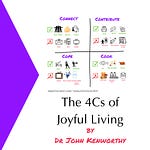



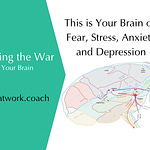
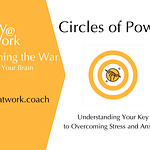
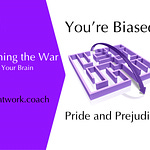
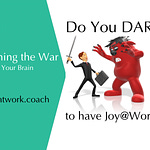
Share this post